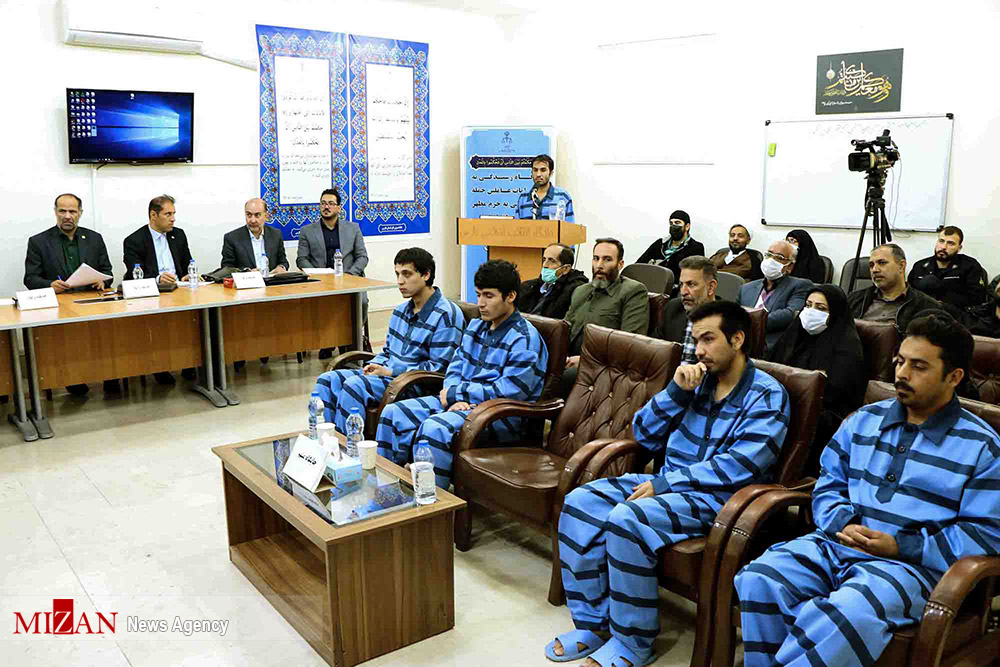Iran Human Rights (IHRNGO) – The Fars province’s prosecutor today announced that the death sentences of Afghan nationals, Mohammad Ramez Rashidi and Naeim Hashem Ghotali have been upheld and will be publicly carried out in Shiraz imminently. The Afghans were sentenced to death for charges of efsad-fil-arz (corruption on earth) and baghy (armed rebellion) based on torture-tainted confessions, without due process and fair trial rights. No evidence of guilt has been presented in the case against the two men.
Iran Human Rights calls for practical punitive measures in order to stop the Iranian authorities’ killing machine.
Director, Mahmood Amiry-Moghaddam said: “In the last 20 days, Iranian authorities have executed 106 people Including two people for expressing their opinion, one kidnapped Swedish-Iranian dual citizen, and three protesters. The international community’s response has been limited to condemnations, with no practical consequences. Now the authorities are taking their campaign of terrorising people one step further by plans of publicly executing two Afghans. Unless they are met with strong punitive consequences, the atrocities will intensify, as there is no limit for how far the regime is willing to go in order to prolong its rule.”
According to IRNA, the Fars province Prosecutor, Seyed Kazem Mousavi stated today that the death sentences of the defendants in the “Shahcheragh” case had been upheld and would be carried out on Shiraz’s “9 Dey Street” imminently.
On 15 February, the Judiciary’s Mizan news agency reported that Afghan nationals Mohammad Ramez Rashidi and Naeim Hashem Ghotali were sentenced to death for charges of efsad-fil-arz (corruption on earth), baghy (armed rebellion) and action against national security by Branch One of the Shiraz Revolutionary Court.

1st defendant in the case, Mohammad Ramez Rashidi in court and in his aired forced confessions
On 26 October 2022, Iranian state media reported a terrorist attack on a shrine called “Shahcheragh” in Shiraz which they claimed the protests had paved the way for. Shortly after, they claimed ISIS was responsible for the attack. In the published video footage of the attack, one shooter was identified as a lone wolf. According to the authorities, he was injured at the scene and later died of his injuries in hospital. However there are discrepancies about the shooter’s identity and nationality. Days later, official sources reported the arrest of six others. Mohammad Ramez Rashidi’s torture-tainted forced confessions were first aired on 2 November but he could not be identified in any of the videos aired as evidence of his involvement. In a documentary named “For ISIS,” which was aired on 9 December, Mohammad’s forced confessions were aired along with three Tajik nationals, one Uzbek and an Azeri national.

Mohammad Ramez Rashidi seated on the far left. It is not clear which of the other four defendants Naeim Hashem Ghotali is, though from the seating order, he could be the defendant sat next to Mohammad Ramez Rashidi.
However, when the trial was reported on 15 February, Mohammad Ramez Rashidi was the only defendant from the documentary, and his co-defendants were all Afghan nationals. Of the five, Mohammad and Naeim Hashem Ghotali Hashem received death sentences. They were denied due process and fair trial rights by the Revolutionary Court and their forced confessions used as proof of guilt. There is no information available about the men prior to their arrests.
The two men were tried along with three other Afghan nationals in the “Shahcheragh” case. Mohammad Rahmani was sentenced to 25 years imprisonment, Mostafa Jan Amani to 15 years and Hamid Ala Kaboli to five years.
On 12 May, Iran Human Rights warned of the imminent execution of 12 political prisoners including Mohammad Ramez Rashidi and Naeim Hashem Ghotali. Three others were executed on 19 May.
It is important to note that Afghan nationals constitute the largest group of non-Iranian executions and death row cases in Iranian prisons. In 2021, no execution of Afghan nationals was recorded until September, when five men were executed in the space of 35 days. On 10 October 2021, Iran Human Rights expressed its concern that the Taliban takeover in August had facilitated the execution of Afghan nationals. That number more than tripled in 2022, with 16 Afghan nationals including a juvenile offender and a woman executed. At least six Afghans have been executed in 2023 so far, with four executed in May.
 Shabtabnews In this dark night, I have lost my way – Arise from a corner, oh you the star of guidance.
Shabtabnews In this dark night, I have lost my way – Arise from a corner, oh you the star of guidance.



